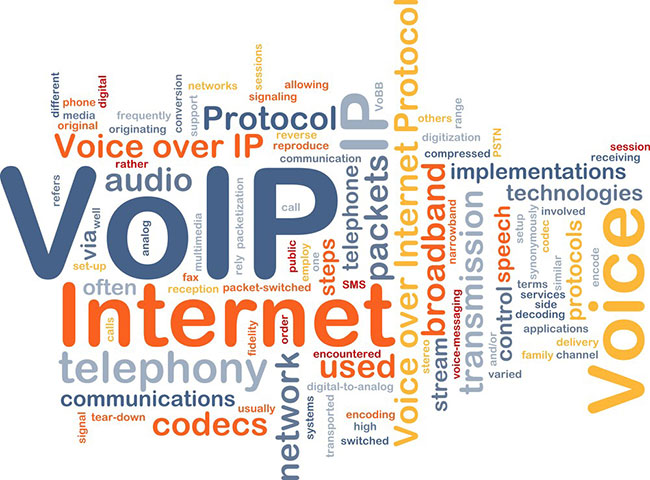Voice over Internet Protocol has become the ultimate tool for communication in today’s world of business, but it has also become a new target for cyber criminals. Since with VoIP voice is transmitted as data, the risk of digitized data being heard and intercepted by unauthorized people increases. That’s why it’s important to know the risks of VoIP fraud and what you can do to avoid such circumstances. Here are the critical points you need to always keep in mind.

VoIP Fraud is on the Rise
International and domestic voice over IP fraud cases have increased in recent years. In fact, research shows that it has significantly increased by 40 percent over the last several years in some countries. According to IT experts, it is expected to grow further as hackers become more knowledgeable and continue to discover new tactics, from password scanning to access stimulation. In general, the rising number of voice over IP fraud cases has become the biggest reason why businesses and establishments in Singapore take the necessary precautions to keep their network secured all the time.
An Unsecured Network is Going to be Costly
Unfortunately, only a small fraction of businesses in Singapore are prepared for a sophisticated system attack. The bottom line is, when someone breaks into a PBX network, the intruder can quickly make outgoing calls to different destinations, which can be very costly to the network owner. Hackers can program the network to start making various calls at the same time, even leaving them open for hours. By time you catch the anomaly, it might have already resulted to extremely high bill. Make sure that your network is locked down and that access is monitored accordingly.
Updated Systems are Less Vulnerable
Hackers use known exploits on specific devices; therefore, make sure that your VoIP network is automatically updated with the latest releases for voip in Singapore that add a new layer of security features or patch vulnerabilities. Most likely, the latest updates fix known security exploits that a cyber intruder may try to capitalize on.
Now is the Best Time to Start Securing
Do not commit the same mistake that many businesses in Singapore have done: wait until they have been targeted by fraud before locking down their network. Secure your voice over IP network and integrate a fraud detection programme before even the slightest sign of fraud arises. Just because you have not been a victim of such thing yet does not mean you are perpetually safe.

How to Avoid VoIP Security Issues
Voice over IP is a new type of internet application, but ultimately it is another data delivered using the internet. Many security measures used today to protect plain text applications—from FTP and telnet to e-mail, instant messaging and Web—can be used to secure VoIP network.
Get a Monitoring System
Keep in mind that unfortunate things do happen, regardless of how secure your system is or how much you have prepared for unexpected incidences. If a cyber attack occurs, it would be extremely helpful to have some sort of notification system, so that preventive actions can be executed immediately and avoid further damage. One ideal solution is a real-time alert system that will notify you when there is any abnormal or suspicious network activity. Even better, look for a plan that will allow you to customize the alerts—for example, alerts sent by IP source or jurisdiction—in order to get a more comprehensive plan that meets your needs.
Lock Down Voice Servers
Lock down servers physically and logically for the admin. Allow only the administrators to have access to the servers to limit the possibility of unauthorized access. For further security, use domain restrictions and two-factor authentication for admin access, including access to credentials and configuration files.
Configure User Profiles and Dial Plans
Take advantage of the built-in security features of your voice over IP system. Most VoIP in Singapore have security features such as control in voice network access by device certificate and/or with username and password and restriction of types of calls by user, device and other criteria.
Encrypt Sensitive Data
Use encryption by device, segment or user, but avoid encrypting indiscriminately as it can result in network latency. Ask your service provider to encrypt the signalling with Session Initiation Protocol (SIP) over Transport Layer Security (TLS). Encrypt voice packets, as well, with protocols like SRTP and your network connection with VPNs to ensure security round the clock.
Assess Security Measures
If you are using security applications and firewalls to protect your network from cyber attacks, make sure to evaluate your security system’s effectiveness periodically. If a third party is handling your VoIP system, ask them to perform a security test to spot possible vulnerabilities within the system.
Educate Your Staff
Understanding why you need to implement certain security measures and restrict access to your VoIP network is a good start in defending your system against cyber attacks, but that’s no silver bullet. Aside from securing against technical attacks, organizations and businesses also need to train employees and staff how to detect threats like vishing—an engineering scam whereby attackers attempt to steal sensitive information via phone calls.

Overall, the most important thing is that you take the necessary precautionary measures to keep your network secured. VoIP in Singapore makes business operations more convenient, but it is your responsibility to protect your system and your business’ reputation in terms of reliability and security, so that your clients never have to worry.